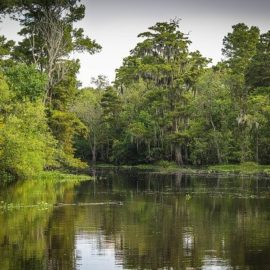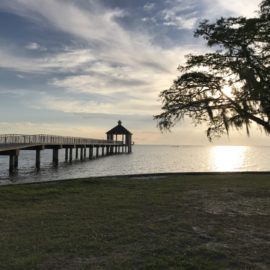
The environment and environmentalists, and their lawyers, had numbers attached to their work and here are some.
The environmental justice movement notched important victories in Louisiana this week by blocking two planned petrochemical plants — a move that will prevent huge amounts of greenhouse emissions from entering the atmosphere. The petrochemical complexes would have both been built in St. James Parish, home to what is commonly known at Louisiana’s “cancer alley.” With the emergence of shale gas drilling over the past dozen years, many companies have flocked to the area to take advantage of inexpensive natural gas. There are now approximately 150 oil refineries, plastics plants and chemical facilities there. But over the past few days, two of those projects — Formosa Plastics and South Louisiana Methanol — were shelved. Louisiana’s 19th Judicial District Court reversed the Louisiana Department of Environmental Quality’s decision to issue air permits to Formosa Plastics. And LDEQ said that South Louisiana Methanol failed to modify its permit within the time allotted.
washingtonpost.com
Here are the numbers.
The rulings’ consequences lie in these numbers: $9.4 billion. The amount the Taiwanese company Formosa Plastics would have spent building a new petrochemical complex covering 2,400 acres — or about 1,818 football fields, counting the end zones, $2.2 billion. The amount South Louisiana Methanol had planned on spending on its chemical plant and 13.6 million tons. That’s the volume of greenhouse gases that would have been emitted by Formosa Plastics every year. It’s equal to about three-and-a-half coal plants — more than the carbon footprint of Rhode Island or the District, according to Rhode Island’s Department of Environmental Management. The South Louisiana Methanol complex would have been the largest in North America, emitting more than 2 million tons a year of greenhouse gases. Formosa also would have emitted 800 tons of toxic chemicals a year. 14. The number of air permits approved by the Louisiana Department of Environmental Quality in 2020, despite 15,500 public comments submitted opposing the permits. 34. The number of pages in the opinion by the Louisiana 19th Judicial District Court judge Trudy M. White, who said residents who challenged Formosa’s air permits “could not have known that LDEQ would violate its duty.”
These are straight numbers but there are more.
In the Welcome and St. James census tract, more than 87 percent of more than 2,000 residents living there identify as “Black or African American,” according to the U.S. Census Bureau. That tract that would have been most affected by the Formosa Plastics plan. “The demographics of Welcome reflects its roots as a place once dominated by plantations, populated by the enslaved ancestors of present-day residents,” the judge wrote. ProPublica reported that “the air around Formosa’s site is more toxic with cancer-causing chemicals than 99.6 percent of industrialized areas of the country” already. “If the complex emits all the chemicals it proposes in its permit application, it would rank in the top 1 percent nationwide of major plants in America in terms of the concentrations of cancer-causing chemicals in its vicinity.” Formosa Plastic has said that it expected to create 1,200 new direct jobs with an average salary of $84,500 plus benefits. But only a few would have gone to people living in the area, community leaders said. Janile Parks, Formosa’s director of community and government relations, said in an email that the company “respectfully disagrees” with Judge White’s conclusion. She said the permits issued by the LDEQ “are sound” and that the agency “properly performed its duty to protect the environment.” Parks said the company “intends to explore all legal options.” Julie Teel Simmonds, senior attorney at the Center for Biological Diversity, said in a statement that “the ruling affirms our long-held conviction that it is completely contrary to the public trust and environmental justice to further pollute a Black community already living with unhealthy air for the sake of generating more throwaway plastic already permeating our planet.”
This puts in perspective much of what the judge said. I am appalled that LDEQ does not listen to the population.



